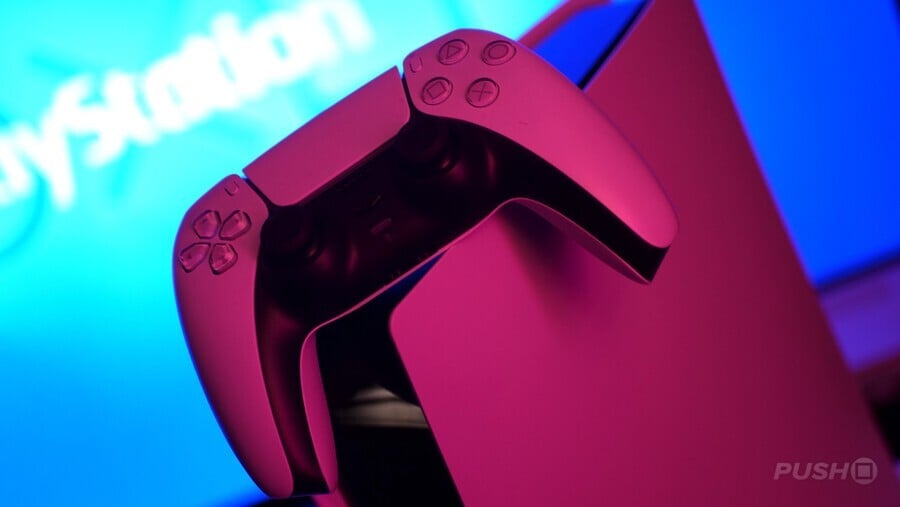
Logging into your PSN account is already pretty secure thanks to two-factor authentication (you should really activate that if you haven't, by the way), but if you find it a hassle entering your password every time, you're in luck. PlayStation now supports sign-ins via a passkey, allowing you to use your computer or smart device to log in and forego the password step.
Basically, you can hook your PSN account up to your phone or PC with a passkey, and that lets you sign into your PS5 or PS4 using your device's more secure methods. For example, if you use Face ID to unlock your iPhone, you can set it up so that you use that same security measure to sign into PSN. This replaces the need to enter a password.
Getting the passkey set up is fairly painless. To set up a passkey via mobile, log into your console and go to Settings > Users and Accounts > Account > Security, then choose Sign In with Passkey. You'll be presented with a QR code you can scan with your smartphone. This will take you to a website where you'll need to sign into your PSN account as normal, then confirm the passkey. Once that's done, sign out of your console. You'll then need to sign back in using your new passkey method. This involves scanning a QR code, which opens the PlayStation mobile app, and you'll be able to use your mobile's security method to sign into PSN.
To set it up via a computer, go to this official site, click Activate Now, and follow the steps.
Either way, once it's done, logging into PSN will skip over entering your password, and instead use more secure measures like Face ID, fingerprint recognition, and so on. You can still sign into your PSN account manually with your password if you want, and deactivate the passkey at any time, but a passkey is less vulnerable as it's unique to you and can't be guessed or reused.
Will you be setting up a passkey login method on your PS5 or PS4? Let us know in the comments section below.
[source playstation.com, via engadget.com]





Comments 17
Already setup and works well,.good to have better security
Hello,
I've got two questions about this feature for users that have enabled it. Is it possible to use USB security keys like Yubikey or Google titan to configure and use the passkey? The second question is what happen for application passwords we have to use for PS3 and PSVita?
Will this still work for older systems like the PS3 and Vita?
That's great. I will set that up right now.
Edit: What an awful experience. It set up so easy, but I can no longer sign in because my passkey is not being accepted for some reason. I get the option to sign in manually instead, but now my password won't work because I get prompted to use the passkey. Currently, I'm unable to sign in.
Update: I went through the account recovery process and went back to two-factor authentication, but this time using an authenticator instead of SMS. That's very secure as it is, so I'll just stay there.
Good, I can already do this with nintendo eshop account, sony is lazy that it took them so long to follow suit 😕
@mwatcher I think it's safe to assume no, considering two factor doesn't work for those.
@TheCollector316 yikes. Any update?
@zhoont
Aye. I just updated my comment. I did the account recovery process and got in again. I had to change my password, but I was able to change it back to what it was previously, so that's nice. I went back to two-factor authentication. I'll try the passkey method again someday, but not any time soon. Sony has some kinks to work out still.
I tried it and it said "a passkey cannot be created for this device". Oh well. I hardly ever have to enter my password anyway.
@mwatcher Weirdly, the PS3 and Vita don't need this but the PSP does, sort of! You can still log into your PS account but the usual password won't work and you have to generate a new random one on the Sony site!
but what happens if you lose access to your phone?
Passkeys aren't as safe as two steps authenticators. But then again, if you know what you are doing, nothing is safe really..spoofing phone number and or intercepting codes for two pass authentication is possible too.
Great, now let's have scanning PSN codes we buy at stores again.
@TheCollector316
I already have 2-step verification enabled. And my password is something special and has a lot of value to me personally. So no passkey for me.
@DualWielding
You have to go through the account recovery process in which second layer security is disabled and you have to create a new password. I had to go through this process because my passkey wouldn't work on my phone, which results in effectively the same scenario you describe.
@TheCollector316 I just went thru the same process as you did, configured my passkey, when i tried to login, didn't give me the option to use my device (phone) for authentication, password recovery/change... back to the beginning
@AndrehF
Bummer. I hope they fix that. In the meantime, I went from SMS 2FA to using an authenticator. I have to use one for so many things as it is (work-related and otherwise), it's not too big of a deal and is very secure.
Tap here to load 17 comments
Leave A Comment
Hold on there, you need to login to post a comment...